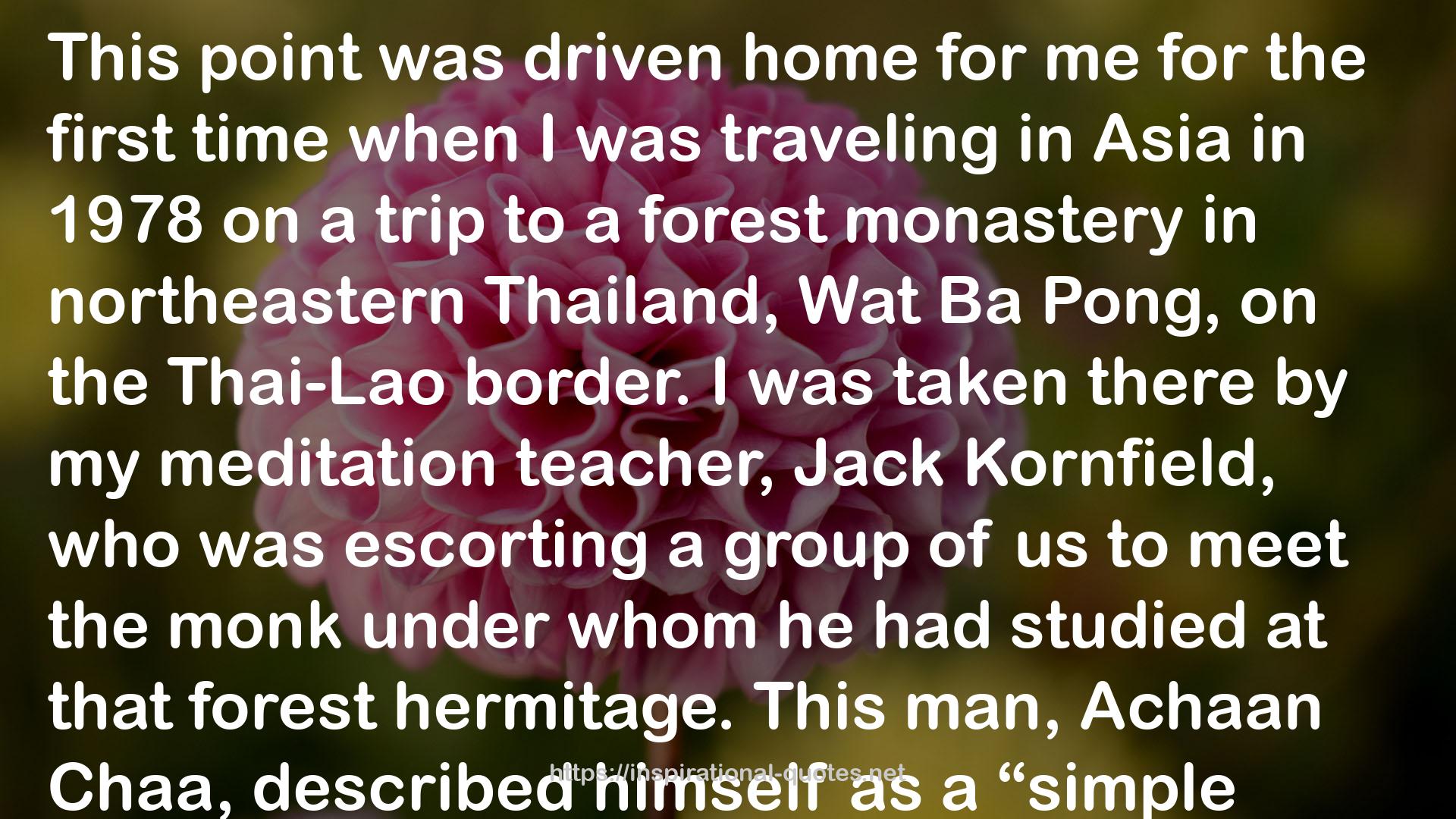" This point was driven home for me for the first time when I was traveling in Asia in 1978 on a trip to a forest monastery in northeastern Thailand, Wat Ba Pong, on the Thai-Lao border. I was taken there by my meditation teacher, Jack Kornfield, who was escorting a group of us to meet the monk under whom he had studied at that forest hermitage. This man, Achaan Chaa, described himself as a “simple forest monk,” and he ran a hundred-acre forest monastery that was simple and old-fashioned, with one notable exception. Unlike most contemporary Buddhist monasteries in Thailand, where the practice of meditation as the Buddha had taught had all but died out, Achaan Chaa’s demanded intensive meditation practice and a slow, deliberate, mindful attention to the mundane details of everyday life. He had developed a reputation as a meditation master of the first order. My own first impressions of this serene environment were redolent of the newly extinguished Vietnam War, scenes of which were imprinted in my memory from years of media attention. The whole place looked extraordinarily fragile to me. On my first day, I was awakened before dawn to accompany the monks on their early morning alms rounds through the countryside. Clad in saffron robes, clutching black begging bowls, they wove single file through the green and brown rice paddies, mist rising, birds singing, as women and children knelt with heads bowed along the paths and held out offerings of sticky rice or fruits. The houses along the way were wooden structures, often perched on stilts, with thatched roofs. Despite the children running back and forth laughing at the odd collection of Westerners trailing the monks, the whole early morning seemed caught in a hush. After breakfasting on the collected food, we were ushered into an audience with Achaan Chaa. A severe-looking man with a kindly twinkle in his eyes, he sat patiently waiting for us to articulate the question that had brought us to him from such a distance. Finally, we made an attempt: “What are you really talking about? What do you mean by ‘eradicating craving’?” Achaan Chaa looked down and smiled faintly. He picked up the glass of drinking water to his left. Holding it up to us, he spoke in the chirpy Lao dialect that was his native tongue: “You see this goblet? For me, this glass is already broken. I enjoy it; I drink out of it. It holds my water admirably, sometimes even reflecting the sun in beautiful patterns. If I should tap it, it has a lovely ring to it. But when I put this glass on a shelf and the wind knocks it over or my elbow brushes it off the table and it falls to the ground and shatters, I say, ‘Of course.’ But when I understand that this glass is already broken, every moment with it is precious.”5 Achaan Chaa was not just talking about the glass, of course, nor was he speaking merely of the phenomenal world, the forest monastery, the body, or the inevitability of death. He was also speaking to each of us about the self. This self that you take to be so real, he was saying, is already broken. "
― Mark Epstein , Thoughts Without A Thinker: Psychotherapy From A Buddhist Perspective
